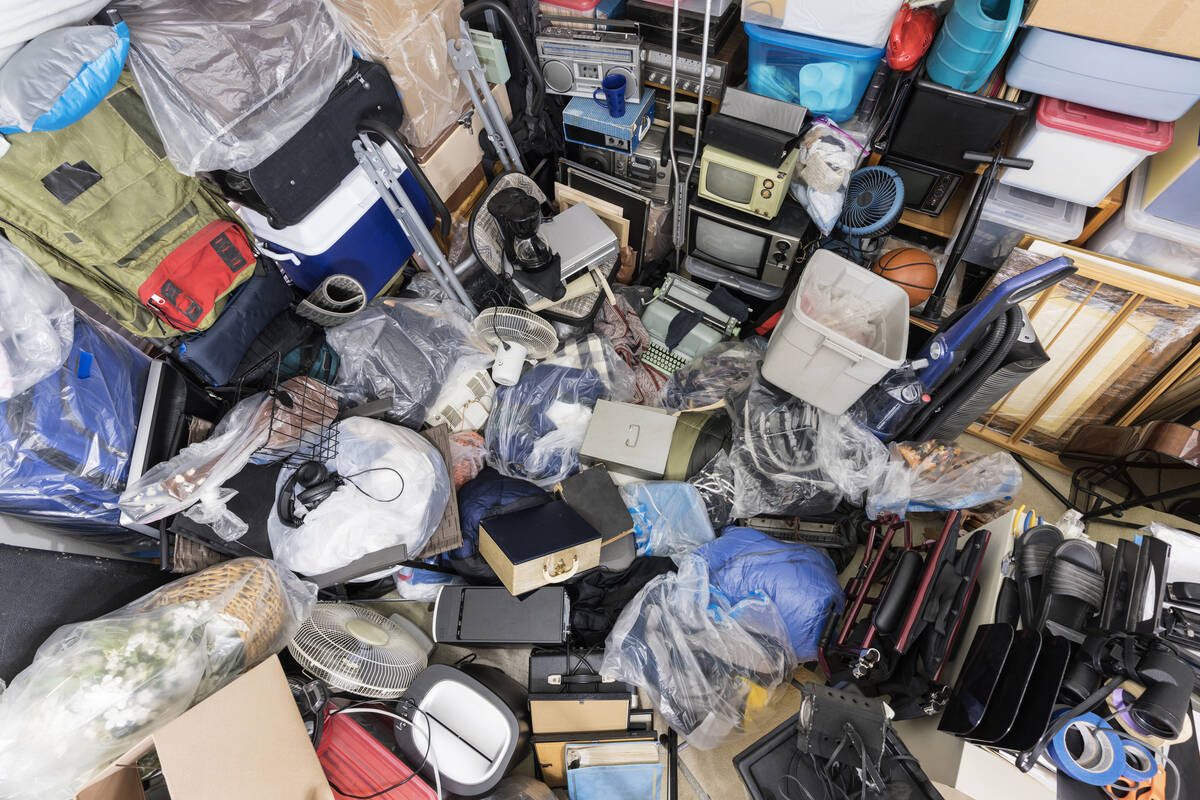Savvy Senior: How to help a hoarding parent
Dear Savvy Senior: My dad has always been a pack rat, but since Mom died a few years ago he’s become more of a hoarder. The clutter has gotten out of control and I don’t know what to do. Any suggestions? — Distraught in Centerville
Dear Distraught: Hoarding or clutter addiction is a problem that’s become increasingly common in the United States. It affects approximately 6 percent of Americans 65 or older. The problem can range from moderate messiness to hoarding so severe it may be related to a mental health disorder such as obsessive-compulsive disorder.
Here’s what you should know, along with tips and resources that can help:
Why people hoard
Most people who hoard do so because of an extreme sentimental attachment to their possessions, or they believe they might need their items later. Hoarding can also be a sign that an older person is depressed, anxious or showing early symptoms of dementia.
Common problems for seniors who live in excessive clutter are tripping, falling and breaking a bone; overlooking bills and missing medications that are hidden in the clutter; suffering from the environmental effects of mold, mildew and dust, and even living among insects and rodents.
What to do
To help you gauge your dad’s problem, the Institute for Challenging Disorganization offers a free Clutter Hoarding Scale at challengingdisorganization.org.
If you find that your dad has a moderate cluttering problem, there are a number of things you can do to help.
Start by having a talk with him, expressing your concern for his health and safety, and offering your assistance to help him declutter.
Most professional organizers recommend decluttering in small steps. Take one room, or even a portion of a room, at a time. This will help your dad from getting overwhelmed.
Designate three piles or boxes for your dad’s stuff – one pile is for items he wants to keep and put away, another is the donate pile and the last is the throwaway pile.
If he struggles with sentimental items that he doesn’t use, suggest he keep only one item for memory sake and donate the rest to family members who will use them.
You will also need to help him set up a system for organizing the kept items and new possessions.
Find help
If you need help with decluttering and organizing, consider hiring a professional organizer.
The National Association of Productivity and Organizing Professionals (NAPO.net) offers a directory to locate a professional in your area.
If your dad has a more serious hoarding problem (if his daily functioning is impaired or if he is having financial difficulties, health problems or other issues) you’ll need to seek professional help.
Talk therapy or antidepressants can help address control issues, anxiety, depression and other feelings that may underline hoarding tendencies and make it easier for him to confront his disorder.
To locate help, contact Helping Elders Live Productively. This is a free education, counseling and referral resource that helps older adults and their families who are experiencing hoarding by connecting them with legal services, mental health assistance and support groups. Call 310-533-1996 for a referral or visit Help4srs.org.
You can also find professional help through the International OCD Foundation, which provides a hoarding center on its website at hoarding.iocdf.org.
For help with challenging cleanup jobs, the biggest provider is Steri-Clean Inc. (see Hoarders.com), a hoarding cleanup company that has franchises throughout the country.
Send your senior questions to: Savvy Senior, P.O. Box 5443, Norman, OK 73070, or visit SavvySenior.org.













